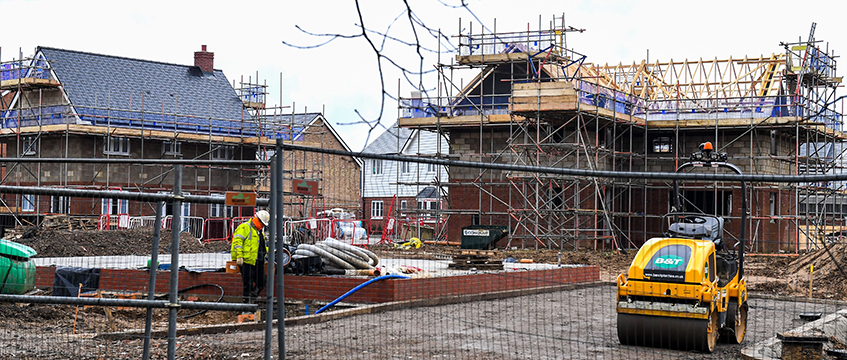Labour must abandon the current market-led approach to planning and return to a plan-led system, a Bartlett School report has said.
The new policy paper from UCL’s Bartlett School of Planning states that the party must embrace a reinvigorated public planning system if it forms the next government, reversing the cuts to local authority planning departments and capturing more land value to tackle the housing crisis and climate change.
The paper, Planning for the Public: Why Labour should support a public planning system, assumes that Labour will form the next government and lays out five areas of planning reform.
Report author Gareth Fearn said: “The next Labour government has a historic opportunity to renew a plan-led system which puts public needs first, redirects money and wealth from rents to productive and job creating activity, and which puts in place a process that can actually deliver housing and green infrastructure that people really need.”
The report argues that the current, market-led approach to planning – with an emphasis on deregulation, privatisation and centralisation of powers – is exacerbating the housing and environmental crises and failing to address inequality.
Fearn added that the Conservatives’ approach, of allowing the market to decide, had been a disaster. “The last decade has seen the Conservative government experimenting with a ‘market-led’ approach to planning, and the result is delay, confusion and housing which is unaffordable to many at the same time that a few make a fortune from simply owning land.”
He calls on Labour to “properly resource” an improved system, with local, devolved and national governments producing more rigorous, up-to-date plans for land use and infrastructure, which would be developed through a democratic process.
The paper says the five areas of focus must be: ensuring communities have the much-needed resources for planning; ensuring greater democracy and participation in the planning process; establishing planning frameworks to address regional and spatial inequalities; setting out how public planning can support net zero and deliver green energy; and how it can prioritise the delivery of social and affordable housing.
To achieve this, the researchers say local government funding must be restored to pre-austerity levels. Funding has fallen by 55% since 2010.
A devolved funding formula for regions should be introduced, the report adds, similar to those in place for the devolved nations, to ensure regional governments have consistent levels of resources following a needs-based approach.
It says that an increase in land value capture and progressive reforms to land and property taxation could be used to fund social housing and infrastructure. This, it says would “capture unearned wealth from planning permission and land”. Priority could then be given to social housing schemes funded by the levies, over and above market-value developments that are “only affordable to the top income deciles”.
The report adds that a plan-led system must be reinstated, across the local, regional and national-level plans, based on strong public engagement.
Highest policy priority should be given to green energy and technology-led developments, including removing the de facto ban on onshore wind developments.
The report says that state-led public and private housing delivery must be encouraged, using mechanisms such as the “new town” development corporation model.
“The existing system erodes the ability of local planners to shape land use decisions in the public interest and for communities to benefit from these decisions,” the report states.
The authors point to the pollution of rivers and coasts, missed climate targets, increasing inequality and the housing crisis as arising from the market-led approach.
The paper’s authors say the policies it lays out are meant as a starting point for Labour to reform the planning system, moving it away from the current market-led model to one that is plan-led, and where local communities take a more active role in the decision-making process.
Fearn added: “What we have set out in the policy paper is a progressive alternative to the deregulatory approach to planning. We simply cannot afford to keep pursuing false solutions any longer; our paper shows that the only way to deliver socially and environmentally beneficial development is through a public, plan-led system.”
To send feedback, e-mail piers.wehner@eg.co.uk or tweet @PiersWehner or @EGPropertyNews











